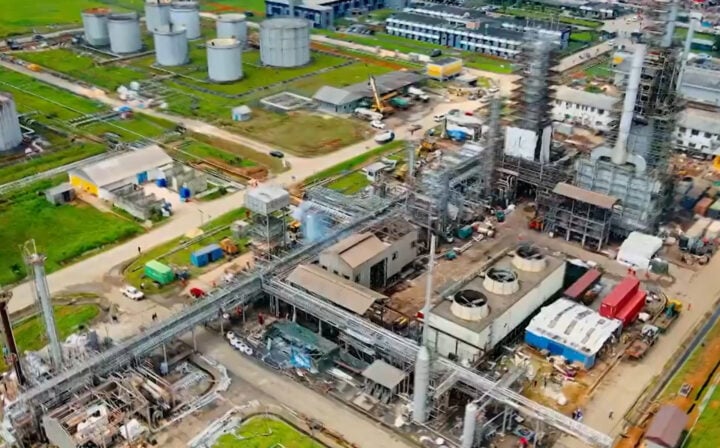BY TEMILOLUWA OYENIYI
Nigeria is not poor due to a lack of money but rather due to the mismanagement of its wealth. In November 2024, the auditor-general’s office reported over ₦3 trillion in financial irregularities across various government bodies. The findings expose Nigeria’s public sector, highlighting massive revenue losses, poor financial controls, and glaring inefficiencies. More than ₦2 trillion in revenues remain uncollected, underscoring a chronic problem of mismanagement, weak oversight, and systemic corruption.
This crisis is not new, but its persistence demands a shift from treating symptoms to embracing bold structural reforms. Two proven solutions stand out: privatisation and decentralisation. These solutions are policy ideas and clear strategies for boosting efficiency, transparency, and economic growth.
One of the most urgent reforms Nigeria must pursue is the privatization of underperforming state-owned enterprises. Nigeria continues to expend billions on underperforming state-owned enterprises with little to show for the expenses. Meanwhile, basic public services remain inadequate, government workers are owed salaries, and critical infrastructure projects are stalled. In contrast, privatisation, when properly implemented, has a strong track record of transforming inefficient public entities into competitive, profit-generating enterprises.
Advertisement
Therefore, for privatisation to thrive in Nigeria, there is a need for limited government control. In other words, to deliver sustainable results, the role of government must shift from being a dominant player in the economy to that of a facilitator. This shift includes limiting direct government control over production and trade, as well as reducing tax pressure, particularly on small businesses. This shift also implies eliminating redundant regulations by the legislature and fostering a market where businesses are free to innovate, compete, and grow.
The United Kingdom’s experience in the 1980s offers a valuable lesson. Under Prime Minister Margaret Thatcher, bloated state-owned entities like British Telecom and British Airways were privatised and transformed into globally competitive companies. Nigeria must take a similar path by accelerating privatisation in key sectors while reforming its regulatory environment so that regulations serve the public’s interest without killing businesses.
The Dangote Refinery partnership illustrates the power of private-sector engagement in solving Nigeria’s economic challenges. Following the removal of the 2023 fuel subsidy, the federal government, unable to revive its state-owned refineries, turned to Dangote Refineries to meet domestic fuel demand. This shift underscores the advantages of public-private partnerships.
Advertisement
Singapore is another clear example of how limited government interference and smart regulation can create a thriving, efficient economy. The state does not micromanage businesses. Instead, Singapore provides a transparent, rules-based regulatory framework that fosters ease of doing business. The Monetary Authority of Singapore regulates financial markets. The Corrupt Practices Investigation Bureau enforces a zero-tolerance policy toward corruption. As a result, Singapore ranks consistently high in global indices for ease of doing business and economic freedom.
For privatisation to succeed in Nigeria, policies must promote fair competition and eliminate barriers to entry. A clear pricing framework must prevent monopolies, ensure fair competition, and protect consumers from exploitation. Nonetheless, to keep markets fair, we need strong rules, like independent bodies that prevent cheating and tough penalties for anyone who tries to abuse the system. Countries like Rwanda and New Zealand demonstrate how streamlined, transparent systems can unlock entrepreneurship and attract investment. Nigeria must follow suit to build a truly open and efficient economy.
Another important recommendation to address the public sector problem is the decentralisation of governance. Nigeria’s federal structure is deeply centralised, making it difficult for local governments to address community-specific needs. The 1976 Local Government Reform was intended to empower local councils. However, today, these institutions remain weak, underfunded, and largely dependent on state governors. While the 2024 push for local government autonomy was intended to give local councils greater financial independence, its implementation has been flawed.
For local government autonomy to be effective, the right structures must be in place. First, skilled professionals, such as financial managers, development economists, and public policy analysts, should be appointed by the state government to manage funds and oversee policy implementation. The analysts would ensure that resources are used efficiently and in line with development priorities. Also, strong anti-corruption measures are necessary. Independent audits, regular performance assessments, and citizen-led oversight boards can help prevent financial mismanagement.
Advertisement
Nigeria’s persistent public sector inefficiencies underscore the urgent need for systemic reforms. The mismanagement, lack of accountability, and revenue losses in government institutions make it clear that a centralised and state-controlled economy is unsustainable. Privatisation and decentralisation present a viable path forward, ensuring that resources are allocated more efficiently, corruption is curtailed, and service delivery is improved.
Oyeniyi was a writing fellow of African Liberty.
Views expressed by contributors are strictly personal and not of TheCable.
